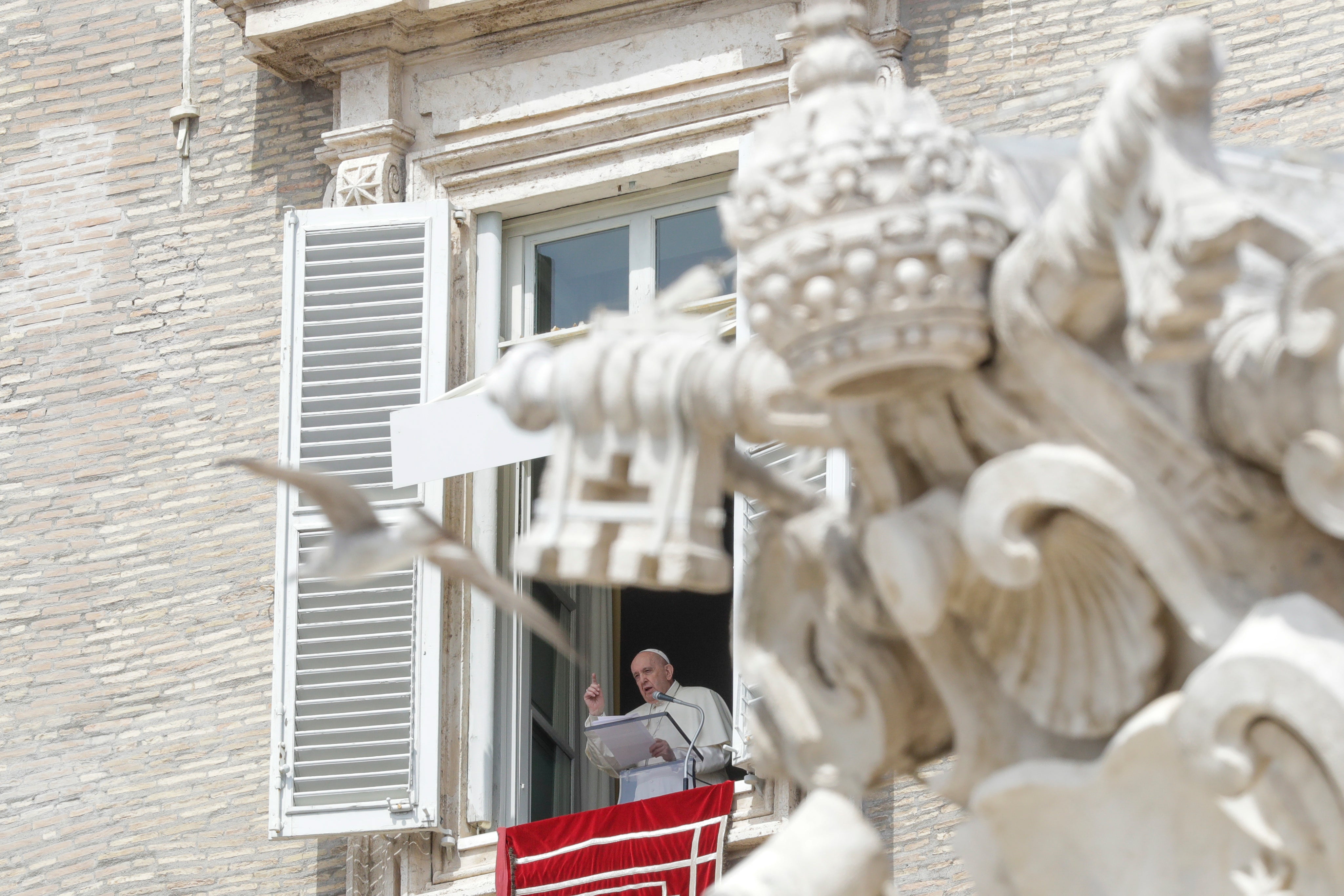Pope meets with Lebanon's PM-designate, urges end of crises
Pope Francis has met with Lebanon’s prime minister-designate and urged all Lebanese political leaders to “urgently commit themselves to the benefit of the nation.”

Your support helps us to tell the story
From reproductive rights to climate change to Big Tech, The Independent is on the ground when the story is developing. Whether it's investigating the financials of Elon Musk's pro-Trump PAC or producing our latest documentary, 'The A Word', which shines a light on the American women fighting for reproductive rights, we know how important it is to parse out the facts from the messaging.
At such a critical moment in US history, we need reporters on the ground. Your donation allows us to keep sending journalists to speak to both sides of the story.
The Independent is trusted by Americans across the entire political spectrum. And unlike many other quality news outlets, we choose not to lock Americans out of our reporting and analysis with paywalls. We believe quality journalism should be available to everyone, paid for by those who can afford it.
Your support makes all the difference.Pope Francis met with Lebanese Prime Minister-designate Saad Hariri on Thursday and urged all Lebanese political leaders to “urgently commit themselves to the benefit of the nation," as the country endures a series of crises and disagreements that have prevented the formation of a government.
Francis also reaffirmed during the 30-minute audience his desire to visit Lebanon as soon as conditions permit, according to a statement from the Vatican spokesman.
“This is a message to all Lebanese and all parties that we have to hurry up in the formation of a government,” Hariri told Lebanese reporters traveling with him after the audience. “The pope sees Lebanon as a message of neutrality and coexistence.”
Hariri’s visit to the Vatican comes as Lebanon is experiencing its worst economic and financial crisis in its modern history following decades of widespread corruption. Since late 2019, the local currency has lost 90% of its value, and more than half of the country's population now lives in poverty, according to the World Bank.
Hariri has been touring the Middle East and Europe to win support for his efforts to form a government. Among the countries he recently visited were France, Turkey, Egypt and the United Arab Emirates. He was also meeting Thursday with Italian officials.
Hariri has not been able to form a Cabinet six months after he was chosen for the prime minister's post amid deep disagreements between him and President Michel Aoun
One of the main points of difference includes Aoun’s rejection of Hariri’s plan to choose some Christian members of the new government. Aoun is a Maronite Catholic, while Hariri is Sunni Muslim
According to Lebanon’s power-sharing system, the president has to be a Maronite and the parliament speaker a Shiite Muslim, while the prime minister has to be a Sunni. Parliament and Cabinet seats are equally split between Muslims and Christians.
The Vatican said that during the meeting with Hariri, Francis expressed his solidarity with the Lebanese people who are “living in great difficulty and uncertainty, and recalled the responsibility of all political forces to urgently commit themselves to the benefit of the nation."
Francis is hoping that Lebanon can once again embody “the fortress of the cedars, the diversity that from weakness becomes strength in the great reconciled people,” the statement said.
Hariri said he asked the Vatican “to be concerned about Lebanon and to intervene where they can be effective because this is what concerns Lebanon and the Lebanese.” He said: “We are in a very bad situation, but once we form a government we can stop the collapse.”
The Vatican didn't list the meeting on Francis' official agenda given that Hariri isn't yet in office; it was described by the Vatican as a private audience, not an official state visit that carries with it specific protocol.
Lebanon, a Mediterranean nation of 5 million, has the largest percentage of Christians in the Middle East and is the only Arab country with a Christian head of state. Christians make up a third of the population.
___
Zeina Karam and Bassem Mroue contributed to this report from Beirut.